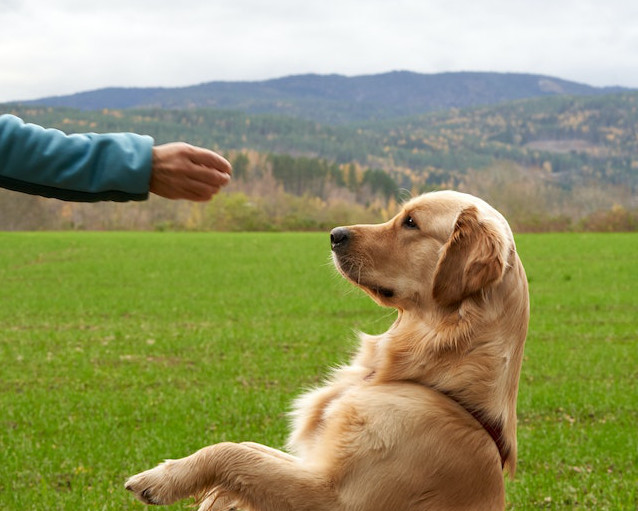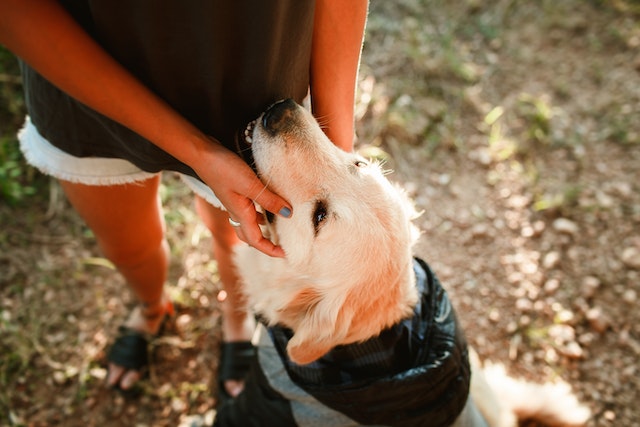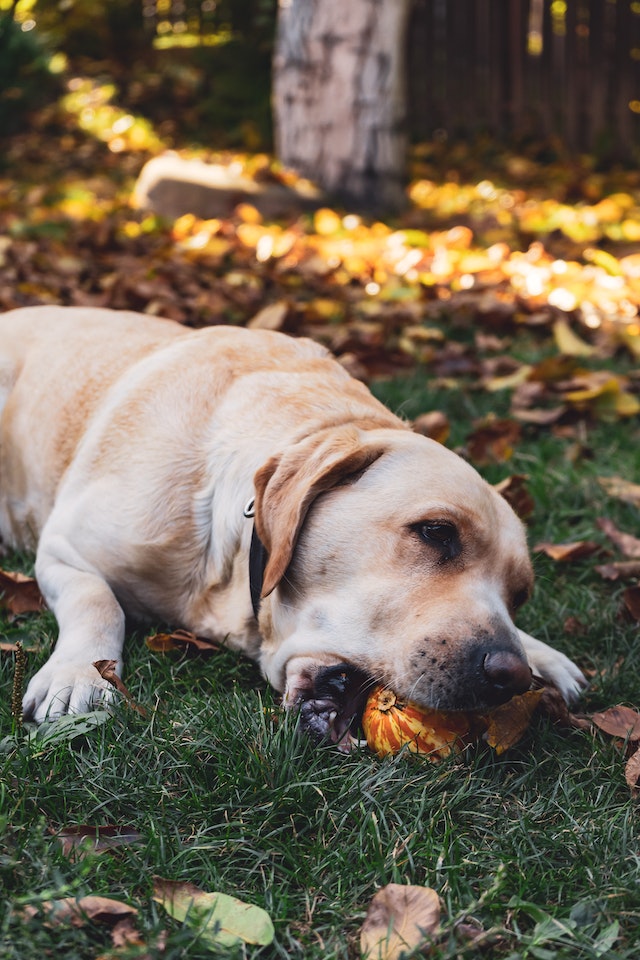You may have heard that some dogs get a health condition called bloat. If you have adopted a golden retriever, you may be concerned and wonder what this is about. Is it something you can prevent, or can it quickly be treated if it happens to your dog?

And does it affect puppies and adult dogs, or both? The more you understand about dogs, the better care you’ll be able to provide for your new family member. And your dog will also be happier and enjoy living with you too!
Contents
What Is Bloat?

Bloat is the common term, but the official medical term is Gastric Dilation-Volvulus. While this condition can be deadly if left undiagnosed and untreated, if it is diagnosed early, it is fully treatable.
It’s important to be aware of it so that you can quickly get your dog to the vet clinic for treatment. Many people in the past did not know what was happening, and unfortunately, they had to say goodbye to their beloved pets at the clinic.
In the USA alone, tens of thousands of dogs, possibly up to 60,000 per year, are brought to the clinics for this condition.
Bloat is also called GDV. This is stomach distension. Humans can get something similar, though not as deadly. You may have gotten bloated from food poisoning or eating too many gassy foods or drinks. For us, it simply resolves, though it is uncomfortable over time.

For dogs, what happens is that their stomach quickly fills with food, fluids, and gas. While that often resolves on its own, the danger lies in when the stomach twists around. The risk is higher the longer it occurs. It can resolve on its own too. But when it doesn’t, the risk of death can be high.
The progression to GDV is when the stomach flips on its axis. You may not know its happened. The main danger is when the stomach has flipped and it places pressure on the surrounding organs. The stomach continues to expand, rather than resolving the issue.
This places pressure on the major arteries and veins. Toxins can build up, and tissues can begin to die. This can decrease the blood flow in the circulatory system. It can become so severe that the blood supply is fully blocked to these major organs. This can lead to shock and death.
Can My Golden Retriever Get Bloat?

Dogs with that type of chest they call “barrel chest” can get bloat. This includes many breeds of dogs, including Afghan hound, the basset hound, chow, collie, Great Dane, Irish Setter, Bernard, Weimaraner, standard poodle, and yes, even the Golden Retriever. Now that you understand this, you can keep an eye out for it in your own dog.
What Are the Causes of Bloat?
It affects dogs more in their middle ages than younger or senior dogs. It’s been reported in most dog breeds, though some are more susceptible than others.
Great Danes are perhaps the most susceptible breed, as they can suffer from bloat up to 8 times more than other breeds. Bloat is more common in dogs that have deep chests. The risk is in dogs that are taller than they are wider, with a higher height to width ratio.
The most common cause is when dogs eat too quickly, or overeat. They may ingest a large amount of water over time. If their food bowls are raised, it may contribute to the issue. There are are genetic factors, middle age, and if they exercise right after eating.
What Are the Symptoms of Bloat?

It’s important to be aware of the symptoms of bloat so if it occurs in your dog, you can quickly take them to the vet clinic. It can develop quite quickly. Some of the early signs can include pacing and restlessness or distress. Your dog may have a distended abdomen.
If you touch it, they may react, as they are experiencing pain. They may be retching or trying to vomit, but nothing comes up. There may be extensive drooling. Some more progressive signs include panting or difficulties in breathing. Your dog may be prone on the ground.
What Can I Do to Prevent Bloat in My Golden Retriever?
Measure out their food. If they eat too quickly, give them their food in ¼ timeframes. Measure out the water in their water dish too so they don’t over-drink. After a meal, allow an hour before you head outside to exercise. Stress can also be an issue, so try to eliminate any stressful factors in the home.
What Treatments Are Available for Bloat?
Treatment should be done as quickly as possible. Your vet will be able to confirm that it is bloat your dog is suffering from, and not some other health condition. The gas will need to be released from inside the dog. Pain medication will need to be given to make them more comfortable.
If the dog is just suffering from bloating then they can be treated with medication and then they can go home. But dogs who have had their stomach shift through volvulus will need to be prepped for surgery to correct the positioning and pressure on the other organs. There may even be a chance that surgery will not work at all and it will be up to the owner to decide what to do in this situation.
The surgical procedure will involve opening up the chest cavity and untwisting the stomach from its current position. It will be returned to its appropriate position. Damaged tissue will be removed. A gastropexy will then be done. This will secure the stomach to the abdominal wall through permanent sutures. There is a high success rate, preventing this occurrence for about 95% of the time.
Now that you’re familiar with bloat in golden retrievers, you can do your best to prevent it from happening. And if it does, you can quickly book an appointment at the local veterinary clinic. A happy and healthy dog will bring you much happiness and joy on a daily basis!



